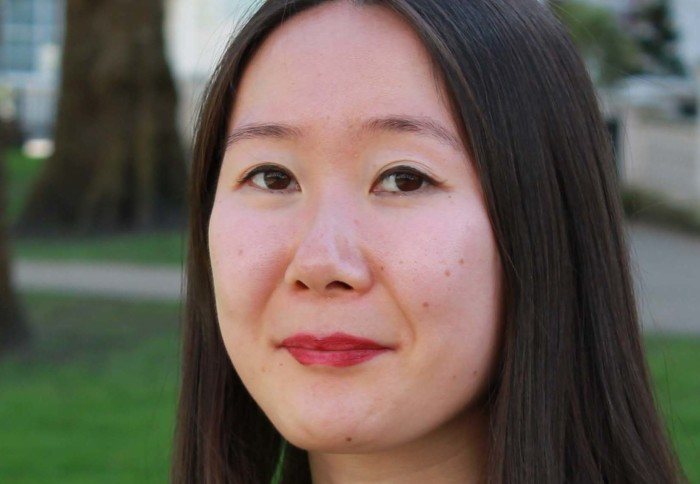Introducing Jasmin Cooper – the newest member of our methane team
by Zara Qadir

We interviewed Dr Jasmin Cooper, an early-career researcher at the Sustainable Gas Institute (SGI) who joined in April
Welcome to the Sustainable Gas Institute, Jasmin. Could you tell me a little about your background?
I am originally from Manchester, and I moved down to London earlier this month to join Imperial College and the SGI. I am an engineer, and I have a degree in Chemical Engineering with Environmental Technology, and also a PhD in life cycle sustainability and sustainable development. Both are from the University of Manchester.
What was your PhD about?
I assessed the impacts of developing shale gas in the UK, and utilising it to generate electricity. We wanted to find out whether or not it is possible to develop it sustainably and if it could be a viable option for UK electricity (combining environmental, economic and social concerns and impacts).
We looked at nine different options (fossil fuels, renewables and nuclear), and shale gas ranked seven out of nine when you consider all aspects (environmental, economic and social) to be equally important. When you consider different aspects to be more or less important, the ranking changes; shale gas ranks fourth when economics are considered more important.
What type of research experience do you have?
During my PhD and degree, I organised a number of research placements/internships. One of those internships involved (using Matlab) looking at how to transport nuclear waste in the UK, in which the outcome was to develop a methodology for sustainable nuclear decommissioning (see Journal article). In another internship, I worked with the chemicals company, Innospec.
So what is your new role in the SGI?
I’m going to be working with Dr Paul Balcombe as a Research Associate on the new Methane Environmental Programme. Paul is currently looking into using natural gas for transport, and this is also the topic of the Sustainable Gas institute’s next White Paper (‘Can natural gas reduce emissions from transport?’). We may also look into alternative uses of natural gas in chemical production and heating.
What is the Methane Environmental Programme? How will you be contributing to the programme?
The Methane Environmental Programme is a project which aims to improve current understanding of methane emissions in the gas network (from well to end use). My contribution to the project will be primarily looking at emissions in the end-use stage and whether or not natural gas can be used as an alternative to conventional fuels/feedstock, as well as what kind of greenhouse gas reductions could be achieved.
So what originally motivated you to work in the area of energy research?

I have always been interested in energy as it’s fundamental to our everyday life. We also need to conduct more studies and research into the area as there is a lot of steps involved in energy production that have not been fully explored. People mostly think about the consumption side, but you really have to look at the full life-cycle and how sustainable these steps are to produce energy.
What attracted you to joining the Institute, and working in the area of natural gas and methane research?
Natural gas is an important energy source. Most people really take it for granted. In the UK, we are so accustomed to immediate access to heat and hot water. We also do not think about where it comes from; a lot of our gas is imported from other countries such as the US. We have to think about where the best sources of gas comes from as well as how to best use it to transition the energy mix from high carbon to non-fossil fuel intensive.
Methane is the main component of natural gas. Methane emissions will have a big effect on whether we met our global climate targets, as it’s a stronger greenhouse gas than carbon dioxide. However, the focus is usually on reducing CO2 emissions but you have to consider all greenhouse gases.
Natural gas is also quite versatile and could replace high carbon fuels such as petrol, coal and diesel but it does depend on how it gets extracted and used.
What attracted you or influenced you to becoming an engineer?
My dad is an engineer so I grew up with the idea that I should become an engineer. He is also an academic, as are most of his friends, so it was a natural route for me. My father works as a mechanical engineer and specialises in heat transfer, so I think that’s where I also got the interest in energy research from.
If you want to read more about Jasmin’s PhD, there is her 340 page thesis or a number of journal articles online:
- Jasmin’s thesis
- Life cycle assessment of Shale Gas in the UK. 2017 (PhD thesis)
- Environmental Impacts of Shale Gas in the UK: Current Situation and Future Scenarios. Energy Technology, 2, 1012-1026;
- Shale Gas: A Review of the Economic, Environmental, and Social Sustainability. Energy Technology, 4, 772-792;
- Economic viability of UK shale gas and potential impacts on the energy market up to 2030. Applied Energy, 215, 577-590;
- Sustainability of UK shale gas in comparison with other electricity options: Current situation and future scenarios. Science of the Total Environment, 619-620, 804-814.
Article text (excluding photos or graphics) © Imperial College London.
Photos and graphics subject to third party copyright used with permission or © Imperial College London.
Reporter
Zara Qadir
Department of Earth Science & Engineering
